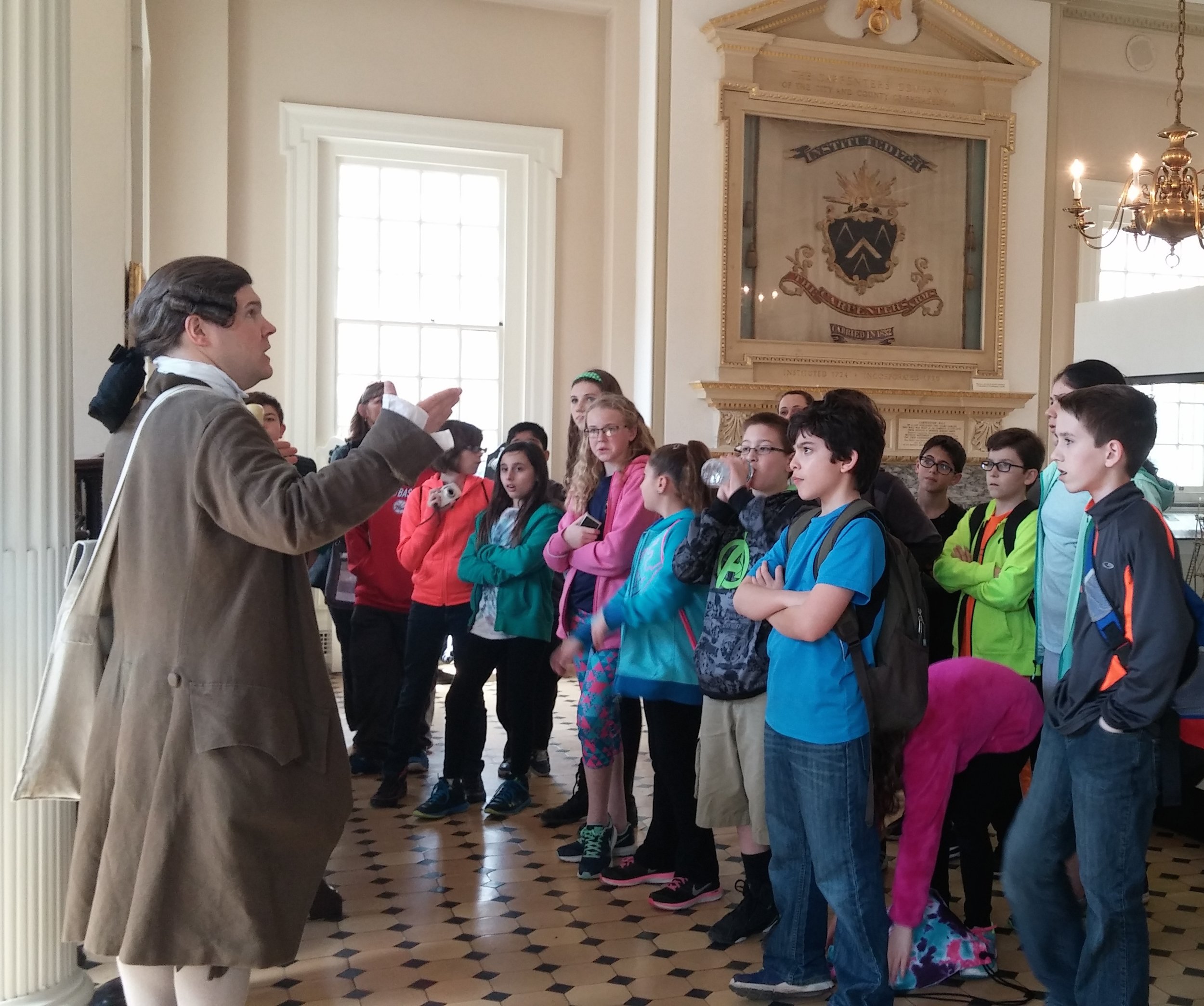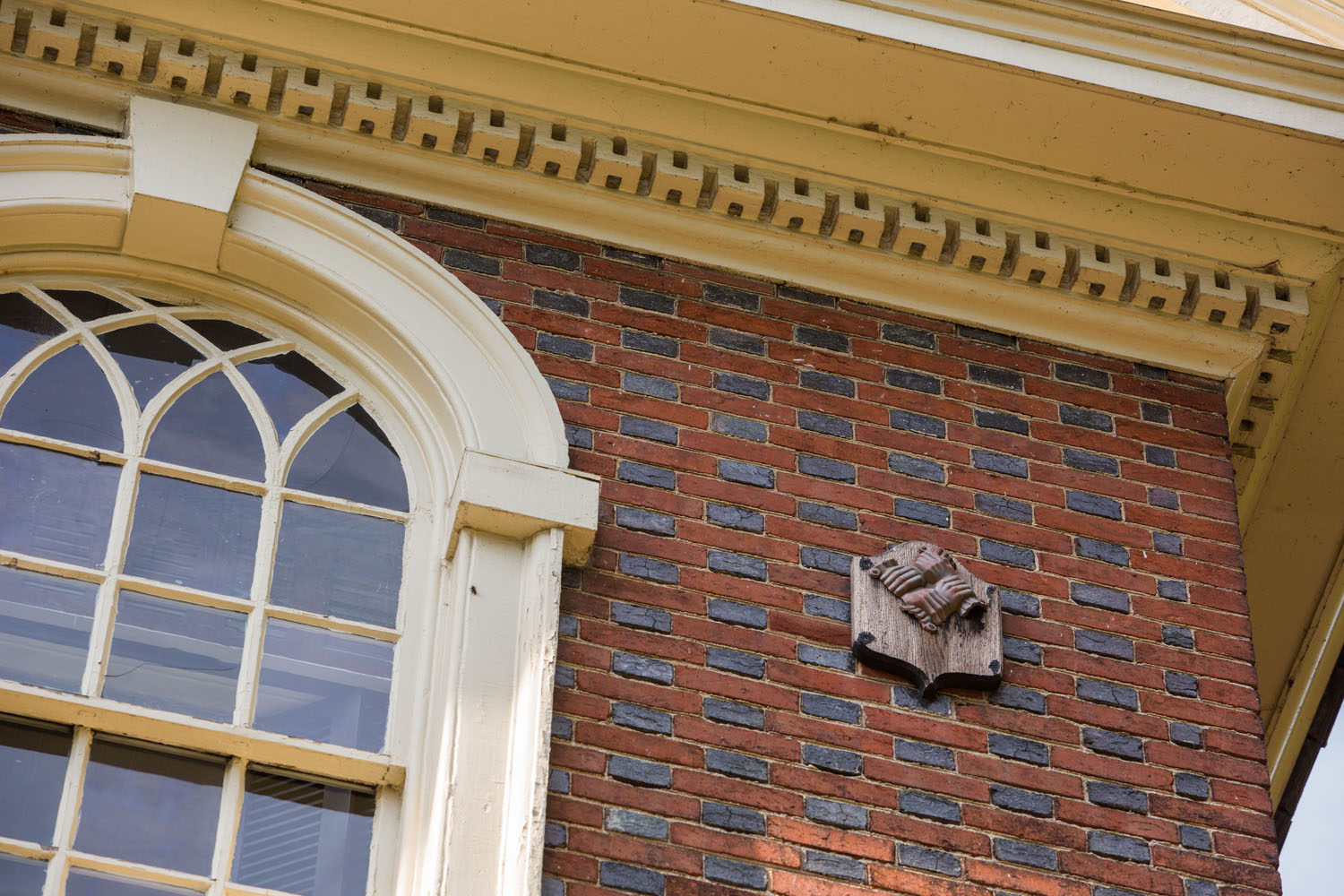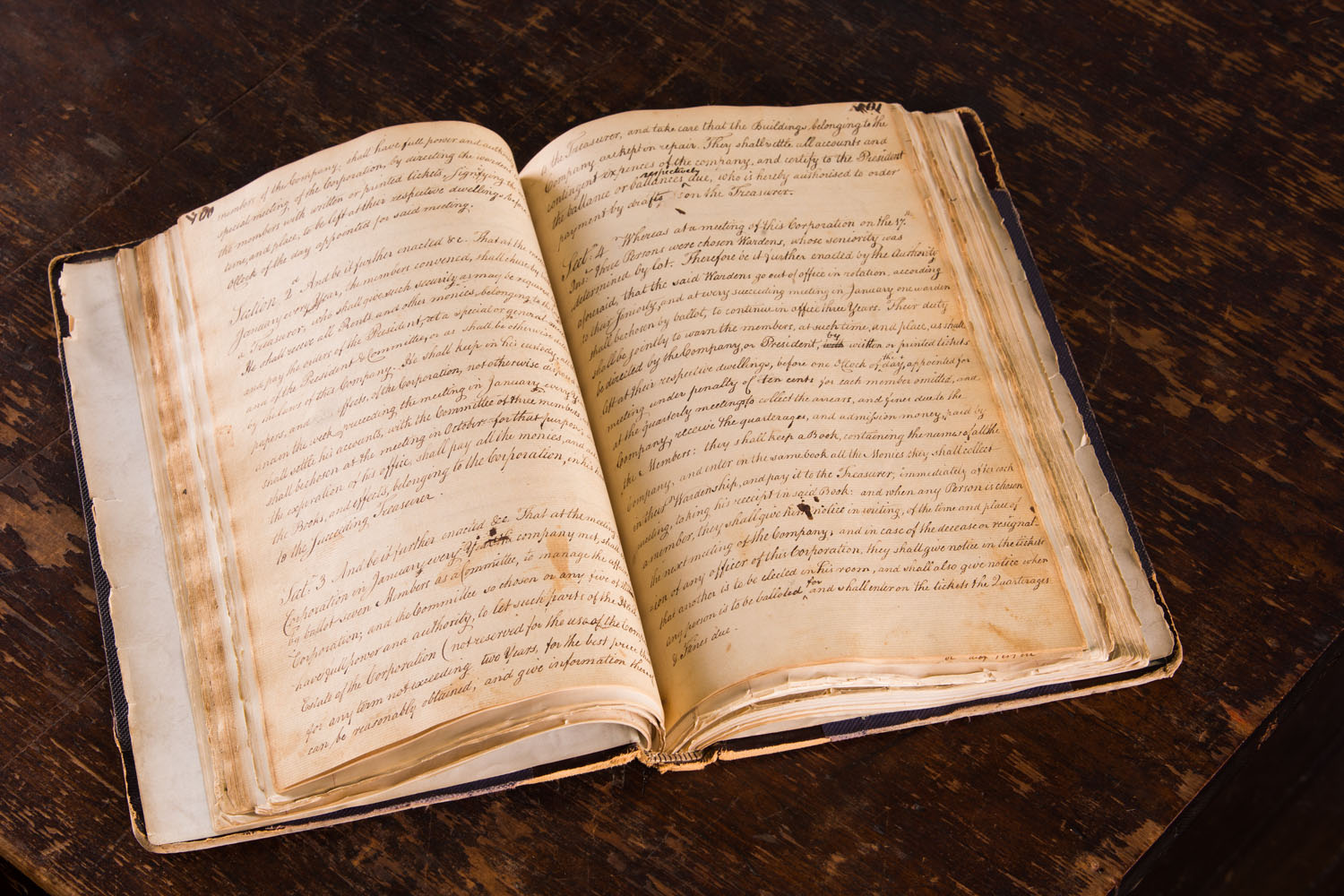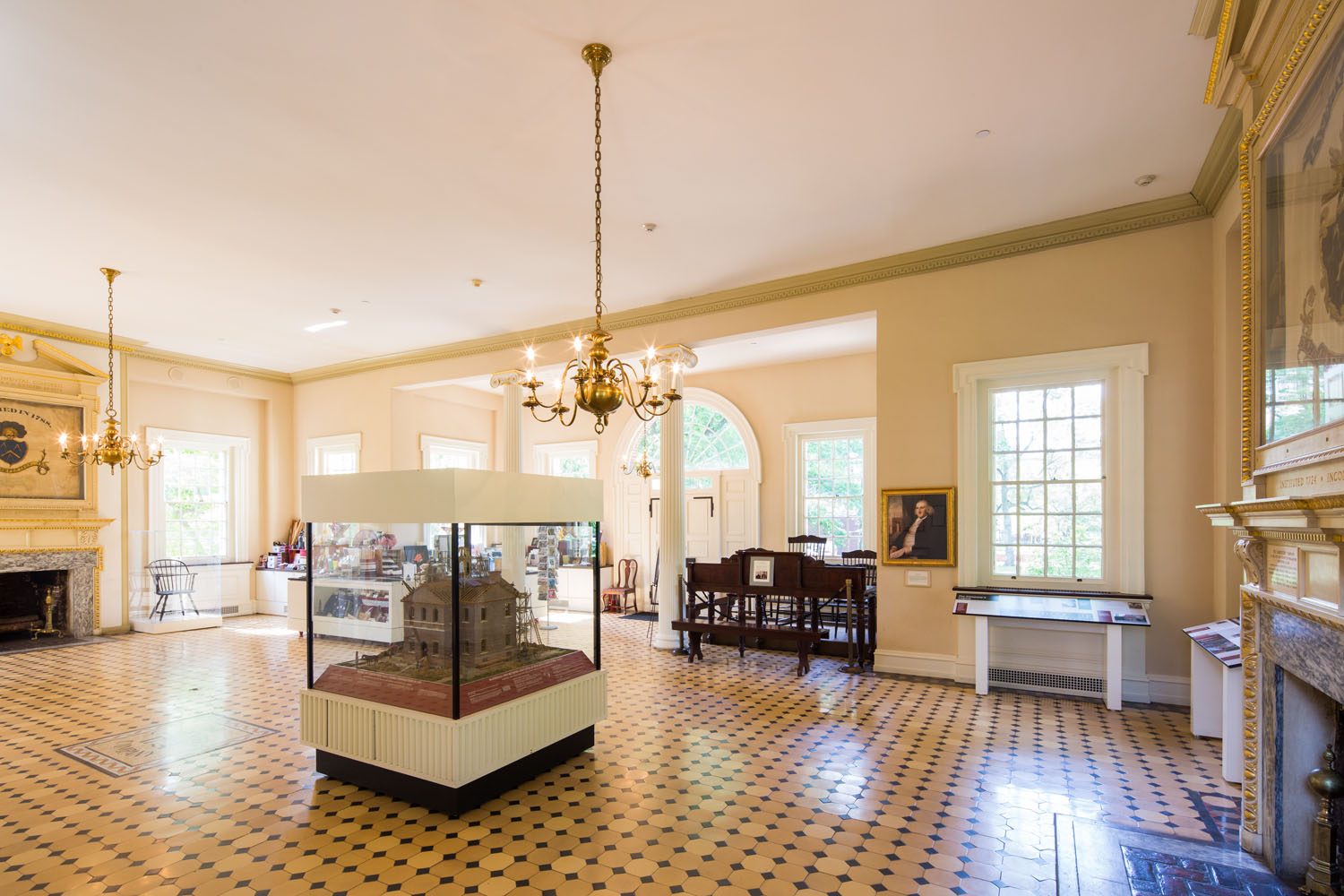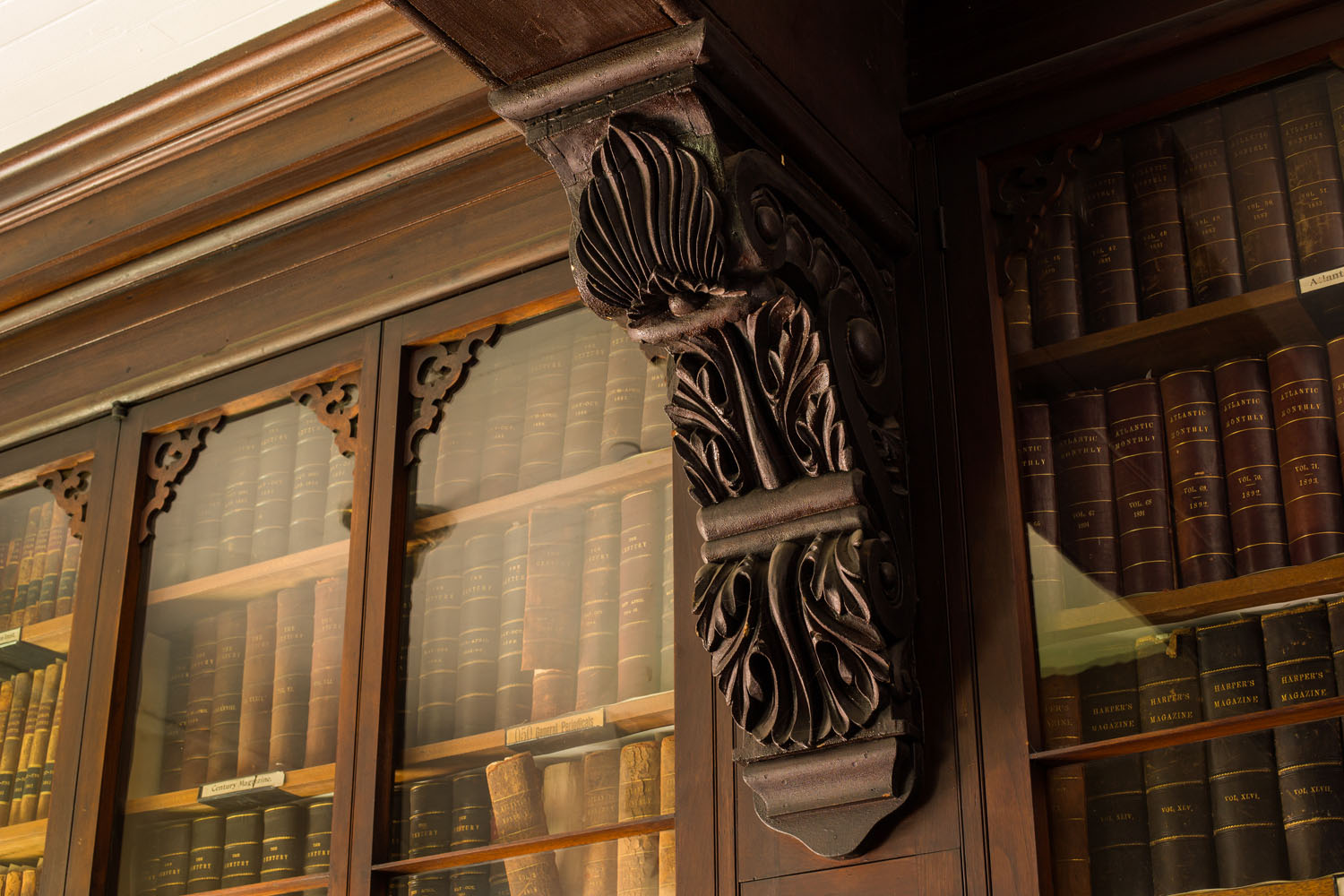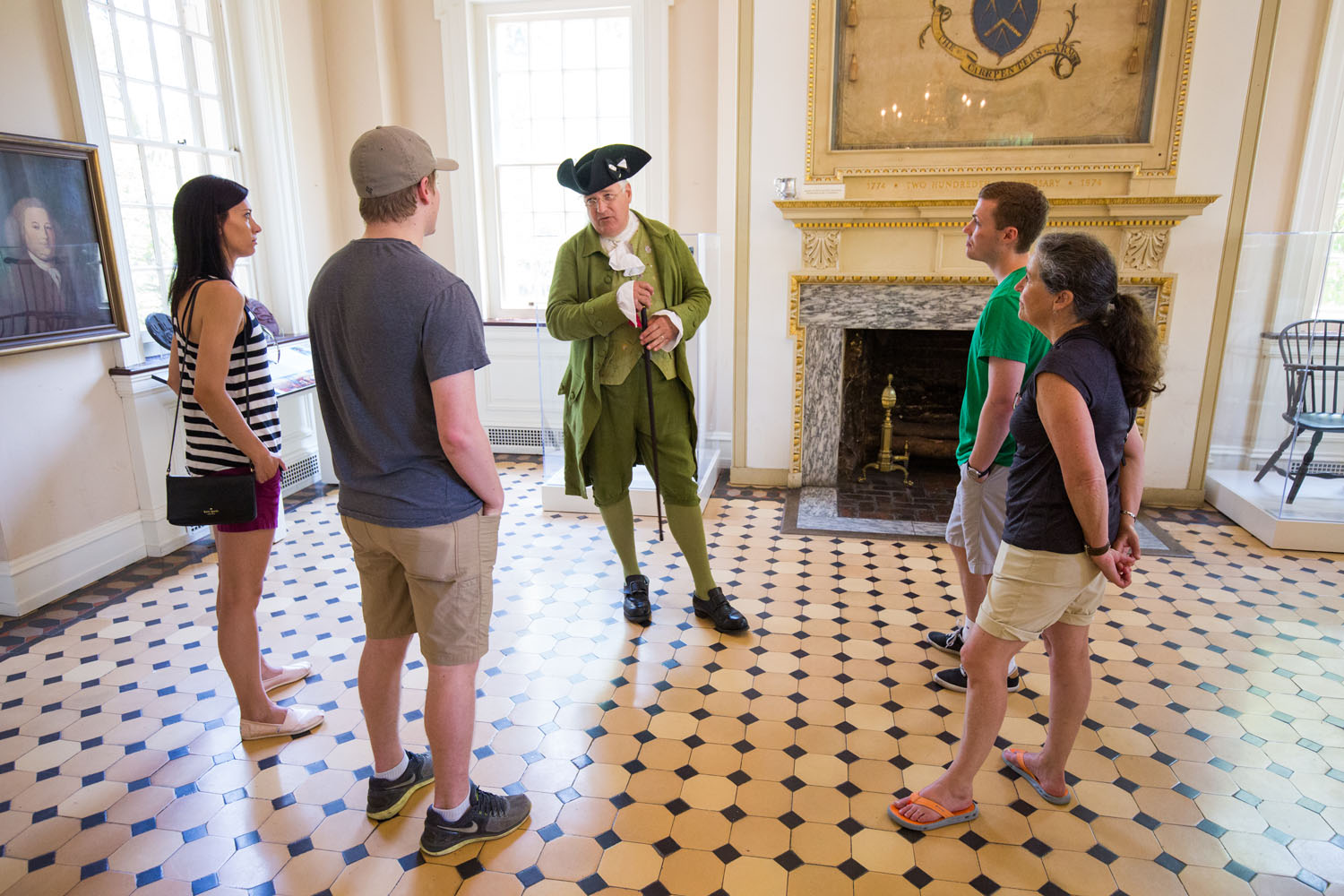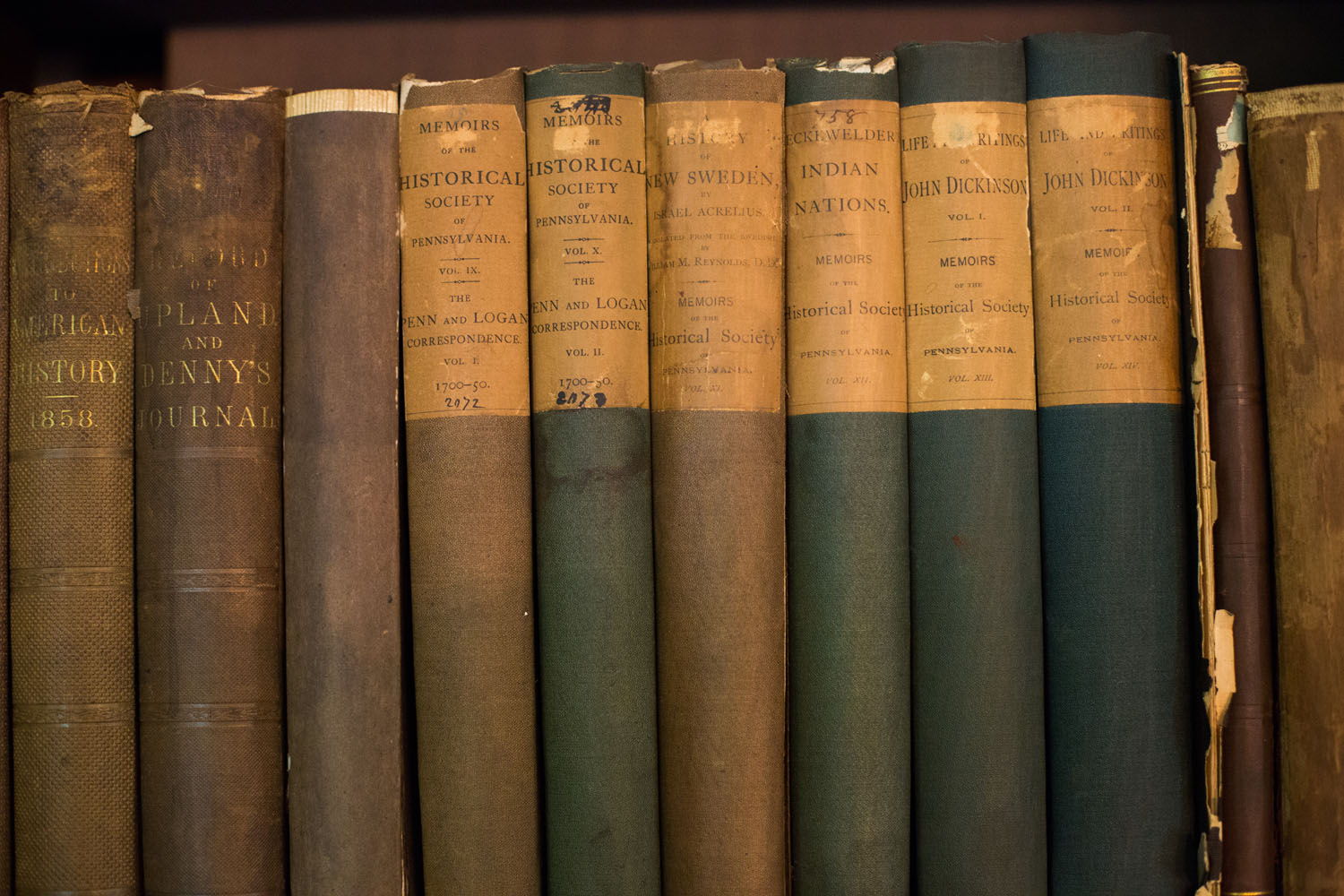Planning Your Classroom Visit
The Company and the Architecture
Carpenters' Hall is, and has been, the official meeting place of The Carpenters' Company of the City and County of Philadelphia for over 240 years. The guild of skilled craftsmen started in 1724 and was based on the Worshipful Company of Carpenters of London. Their first meeting in the Hall, in 1771, was held before the building was completed (construction lasted from 1770-1774). Today the Hall is one of the few sites in Independence National Historical Park that is still privately owned (the others are the American Philosophical Society and Christ Church); The Carpenters' Company has maintained it as a historic site and it remains the Company's headquarters.
The Hall was originally built and has been carefully preserved by Company members for some 240 years - some of the finest architects, engineers and builders in Philadelphia.
Company Members
Over the years, there have been many notable members of The Carpenters' Company. Robert Smith, the architect of the steeple above Christ Church and Nassau Hall at Princeton University, designed and acted as Master Builder of Carpenters' Hall in the early 1770s. He also served on Pennsylvania's Committee of Correspondence. Samuel Rhoads was not only an early Master Builder (i.e., President) of The Carpenters' Company, but also served as mayor of Philadelphia and a Pennsylvania delegate to the First Continental Congress. Another member, Abraham Carlile, was one of two men executed in 1778 for assisting the British during their occupation of Philadelphia (though he was generally thought innocent among the community's citizens), while other members, such was Benjamin Loxley and Thomas Procter, served during the Revolutionary War as American artillerymen. Members of The Carpenters' Company have shaped Philadelphia from its early days and continue to contribute to the building industry as well as to support their greatest asset: Carpenters' Hall.
The Hall's Tenants
Along with the continued use by The Carpenters' Company, many other tenants and groups, including schools, businesses and the first Department of War, have called the Hall their home. As early as 1773, the Hall was rented to Benjamin Franklin's Library Company of Philadelphia. Started in the 1730's, Franklin's was the first free lending library in the colonies — an answer to the problem of the high price of books. For 17 years, the Library Company was located on the Hall's second floor.
While the British occupied the city, Carpenters' Hall was used as a hospital for British soldiers. Previously it had been used as an American infirmary and storehouse. Then during the 1780s, Franklin rented rooms in the Hall for the American Philosophical Society.
Franklin's Secret Meetings
There is also a lesser-known role Franklin played at the Hall. Although abroad during the First Continental Congress (held at the Hall in 1774), he still managed to perform a patriotic act at the Hall. In December of 1775, Franklin met secretly with a French emissary, Julien Achard de Bonvoulair, New Yorker John Jay, and French-speaking librarian, Francis Daymon. Because of these three late-night meetings, the French were persuaded to look further into colonial affairs and eventually aided the colonists in their fight against Britain.
First Continental Congress
Carpenters' Hall is generally thought of as a site representative of American independence. There are two distinct reasons for this conception. In 1774, a general assembly of the colonies was called. Each colony was asked to send representatives to meet in September in Philadelphia. Though other sites were considered to house the First Continental Congress, the newly built Carpenters' Hall was chosen because it was the largest privately owned building of its day (as opposed to the British-owned State House), allowing the delegates more freedom to discuss their grievances against Great Britain.
A group of 56 men from all the colonies except Georgia met in Carpenters' Hall to petition the King to reconsider recent acts of the British Parliament that violated the Massachusetts Bay colony charter (namely closing the Boston harbor and levying what were called "intolerable" taxes). The delegates, including George Washington, John and Samuel Adams, and Patrick Henry, resolved to cut off trade with Great Britain if their demands were not met. They also agreed to meet again the following year if relations between the King and colonies were not improved. Nonetheless, independence from the mother country was not even mentioned. In May of 1775, the Second Continental Congress convened, this time at the State House (today Independence Hall).
Birthplace of Pennsylvania
Carpenters' Hall is also referred to as the "Birthplace of Pennsylvania," for in June of 1776, a group of 103 delegates from the County of Philadelphia and ten surrounding Pennsylvania counties convened at the Hall in response to the call for the formation of militia issued by the Second Continental Congress. During this meeting, arrangements were made to create a new Pennsylvania government and to form a militia. Also drafted during this conference was Pennsylvania's own Declaration of Independence.


